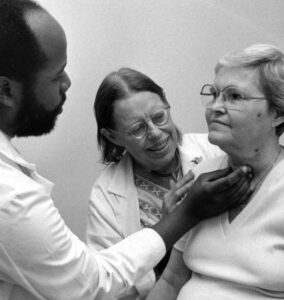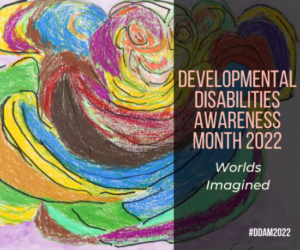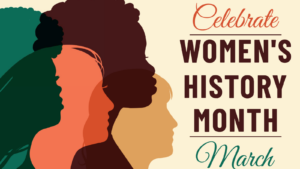In February 1980, President Jimmy Carter issued the first presidential proclamation declaring the week of March 8, 1980, as National Women’s History Week. He stated “…the achievements, leadership, courage, strength, and love of the women who built America was as vital as that of the men whose names we know so well…”
Women’s History Month officially began in 1987 and recognizes all women for their valuable contributions to history and society. At the time, Carter urged the ratification of the Equal Rights Amendment; however, it took decades to reach ratification.
In January, 2020, Virginia ratified the ERA, becoming the 38th state to do so and, in supporters’ eyes, clinching the necessary benchmark for addition to the US Constitution nearly a half-century after the amendment began making its way through state legislatures.
Here at UNC
More than 11,000 women are enrolled at the University of North Carolina at Chapel Hill today, making up more than half of the student body. But that wasn’t always the case.

First Woman Student in the School of Medicine
Cora Zeta Corpening was the first female student in the UNC School of Medicine, enrolling in 1915. The male students voted not to admit her, but she came to classes anyway. Today about half of medical students are women.
First Woman Faculty Member in the Department of Medicine
Dr. Janet Jordan Fischer was the first woman faculty member in the Department of Medicine. She was a fellow in 1952 and became an instructor in 1953. She was awarded the Sarah Graham Kenan Professorship and served in the Division of Infectious Diseases and the Department of Microbiology and Immunology. Dr. Fischer devoted her life to the practice of medicine, to the education of medical students, residents, and Infectious Disease fellows, and to the advancement of women in her profession. She retired professor emeritus in 1991.

Gwendolyn Harrison, the First African American Woman to Attend UNC
When Gwendolyn Harrison decided to come to UNC to pursue a Ph.D. in Spanish, she went through the usual process: she applied and was accepted, and she was assigned a room in one of the women’s dormitories. She arrived on campus in June 1951, checked into her dorm, and went to begin the registration process. When she returned to her dorm, a university employee told her that there had been a mistake: Harrison’s registration was cancelled and should would not be allowed to attend UNC that term. The reason? They had not realized that Harrison was an African American. Read more.
Visit this timeline to learn more about the history of women at Carolina.
March is Developmental Disabilities Awareness Month
 March is also National Developmental Disabilities Awareness Month, established to increase awareness and understanding of issues that affect people with intellectual and developmental disabilities. Every March, the National Association of Councils on Developmental Disabilities partners with Association for University Centers on Disabilities and National Disability Rights Network to create a social media campaign that highlights the many ways in which people with and without disabilities come together to form strong, diverse communities.
March is also National Developmental Disabilities Awareness Month, established to increase awareness and understanding of issues that affect people with intellectual and developmental disabilities. Every March, the National Association of Councils on Developmental Disabilities partners with Association for University Centers on Disabilities and National Disability Rights Network to create a social media campaign that highlights the many ways in which people with and without disabilities come together to form strong, diverse communities.
Other Observances
 March 1: Maha Shivarati, Hindu festival celebrated each year to honor Lord Shiva. It is celebrated just before the arrival of spring. It is also known as the Great Night of Shiva or Shivaratri and is one of the largest and most significant among the sacred festival nights of India.
March 1: Maha Shivarati, Hindu festival celebrated each year to honor Lord Shiva. It is celebrated just before the arrival of spring. It is also known as the Great Night of Shiva or Shivaratri and is one of the largest and most significant among the sacred festival nights of India.- March 1: Lailat al Miraj, a Muslim holiday that commemorates the prophet Muhammad’s nighttime journey from Mecca to the “Farthest Mosque” in Jerusalem, where he ascended to heaven, was purified, and given the instruction for Muslims to pray five times daily. Note that in the Muslim calendar, a holiday begins on the sunset of the previous day, so observing Muslims will celebrate Lailat al Miraj on the sundown of February 28.
- March 8: International Women’s Day. First observed in 1911 in Germany, it has now become a major global celebration honoring women’s economic, political and social achievements.
 March 17: Saint Patrick’s Day, a holiday started in Ireland to recognize St. Patrick, the patron saint of Ireland who brought Christianity to the country in the early days of the faith.
March 17: Saint Patrick’s Day, a holiday started in Ireland to recognize St. Patrick, the patron saint of Ireland who brought Christianity to the country in the early days of the faith.- March 17-18 (sundown to sundown): Holi, the annual Hindu and Sikh spring religious festival is observed in India, Nepal and Sri Lanka, along with other countries with large Hindu and Sikh populations. People celebrate Holi by throwing colored powder and water at each other. Bonfires are lit the day before in the memory of the miraculous escape that young Prahlada accomplished when demoness Holika carried him into the fire. It is often celebrated on the full moon (the Phalguna Purnima) before the beginning of the Vernal Equinox as based on the Hindu calendar.
 March 18: Lailat al Bara’a, also known as Lailat Al Baraah, Barat, or popularly as Shab-e-Bara or Night of Forgiveness. It is an Islamic holiday during which practitioners of the faith seek forgiveness for sins. Muslims spend the night in special prayers. It is regarded as one of the most sacred nights on the Islamic calendar.
March 18: Lailat al Bara’a, also known as Lailat Al Baraah, Barat, or popularly as Shab-e-Bara or Night of Forgiveness. It is an Islamic holiday during which practitioners of the faith seek forgiveness for sins. Muslims spend the night in special prayers. It is regarded as one of the most sacred nights on the Islamic calendar.- March 21: International Day for the Elimination of Racial Discrimination, observed annually in the wake of the 1960 killing of 69 people at a demonstration against apartheid pass laws in South Africa. The United Nations proclaimed the day in 1966 and called on the international community to redouble its efforts to eliminate all forms of racial discrimination.
- March 25: International Day of Remembrance of the Victims of Slavery and the Transatlantic Slave Trade is a United Nations international observation that offers the opportunity to honour and remember those who suffered and died at the hands of the brutal slavery system. First observed in 2008, the international day also aims to raise awareness about the dangers of racism and prejudice today.
- March 31: International Transgender Day of Visibility, celebrated to bring awareness to transgender people and their identities as well as recognize those who helped fight for rights for transgender people.
